Landscapes of Detectorists
...
Edited by Innes M. Keighren
& Joanne Norcup
ISBN 978 1 910010 24 2
112pp, 234 x 142
paperback with flaps
2020, £12.00
New reprint available:
Postage
UK £3.00
Europe £6.50
World £10.00
To order multiple titles please email your order and we will calculate the postage cost.
Email Uniformbooks
Trade orders Central Books
Advance Information
...............................................
Reviews and articles
“Landscapes of Detectorists is a book for fans. It’s a book for fans of the eponymous BBC situational comedy. But it’s also a book for fans of geography, whether professionals or amateur enthusiasts…”
Phil Emmerson, Cultural Geographies
“…it is worth noting the loving attention the publisher has given to this book. Everything—from the cover to the illustrations to the quality of the paper to the clear typeface—works to make reading it an aesthetically pleasing experience. And all at a price that is aimed at expanding the readership rather than limiting it to university libraries.”
Christine Geraghty, Critical Studies in Television: The International Journal of Television Studies
“…this is a project brimming with genuine love for its subject matter. It is borne of an organic shared appreciation of overlapping academic and personal passions. It champions writing of, and for, an unconventional subject. That the editors write of being ‘enriched’ by the process of crafting this collection is no surprise: it is enriching to read.”
Ben Garlick, Journal of Historical Geography
“This is a perfect companion to a wonderful series, and it makes you think about the landscape, the places that Lance and Andy scratch around in for buried treasure. A shout out, too, goes to the beautiful design and production by Uniformbooks, with many photographs from the series, and with the cleverest placement of footnotes I have ever seen. It’s all great fun, then, but serious fun, academic but amusing, engaging without being flippant, and like the series that inspired it, quirky in all the right ways.”
Philip Howell, The AAG Review of Books
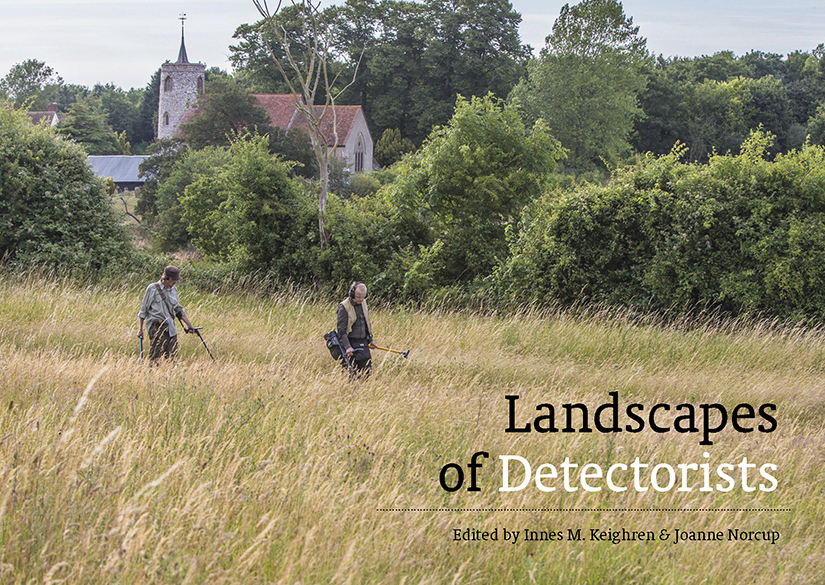
‘Landscapes of Detectorists considers the programme’s engagement with landscape, its ecological resonances, and its attention to place and identity.
The book offers four distinct geographical readings of Detectorists—Innes M. Keighren attends to the sensory, technological, and emotional interpretation of landscape; Isla Forsyth examines the relationship between objects, memory, and place; the significance of verticality, the aerial, and groundedness is discussed by Andrew Harris; and Joanne Norcup considers the contested interconnections of gender, expertise, and knowledge making.
The collection is bookended by reflections on the creative processes and decisions that supported the journey of Detectorists from script to screen: in a foreword written by its writer-director, Mackenzie Crook, and in an afterword written by its originating producer, Adam Tandy.
Illustrated throughout with black and white stills from the programme.
...
“I was detecting on my own… and dug down four inches to find an exquisite bronze hawking whistle. I took a few minutes to unclog the mud with a piece of straw, then held it to my lips and blew. The note that issued from the whistle was a ghost, a sound unheard for centuries, and the last person to hear that sound, that exact sound, was the person who dropped it just yards from where I was standing. And it wasn’t a faint, feeble ghost either: it was an urgent, piercing shrill that echoed across the field and back through time.”
—Mackenzie Crook
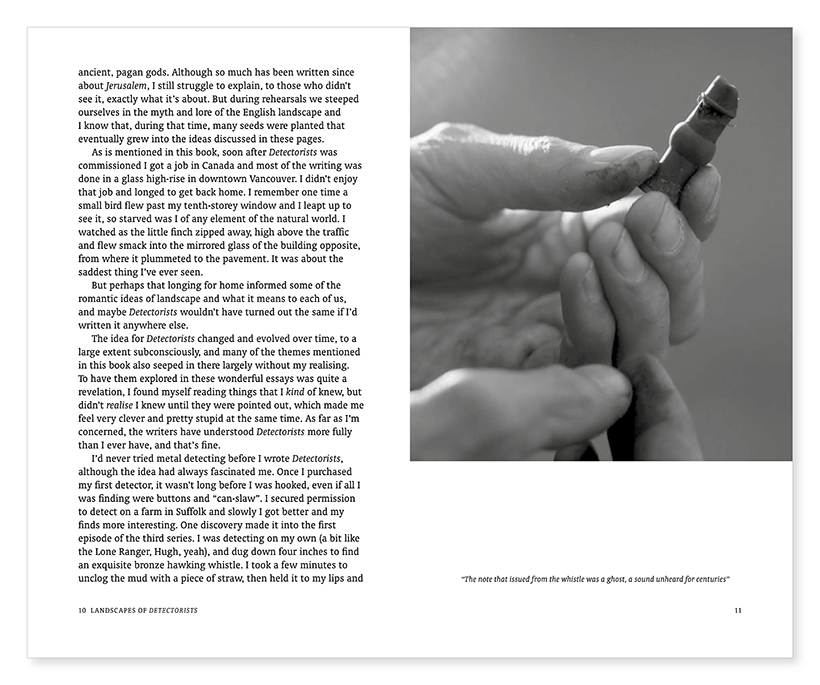
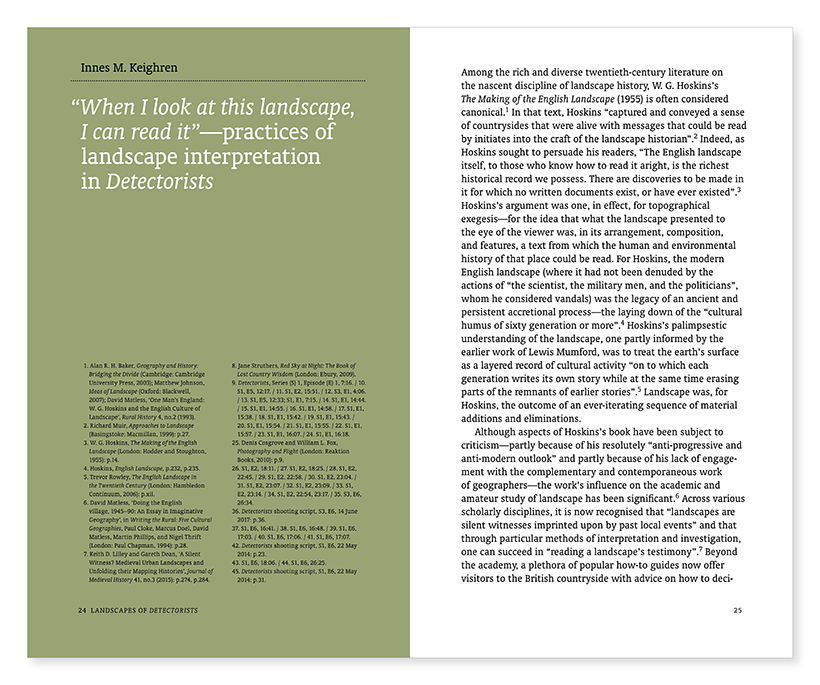
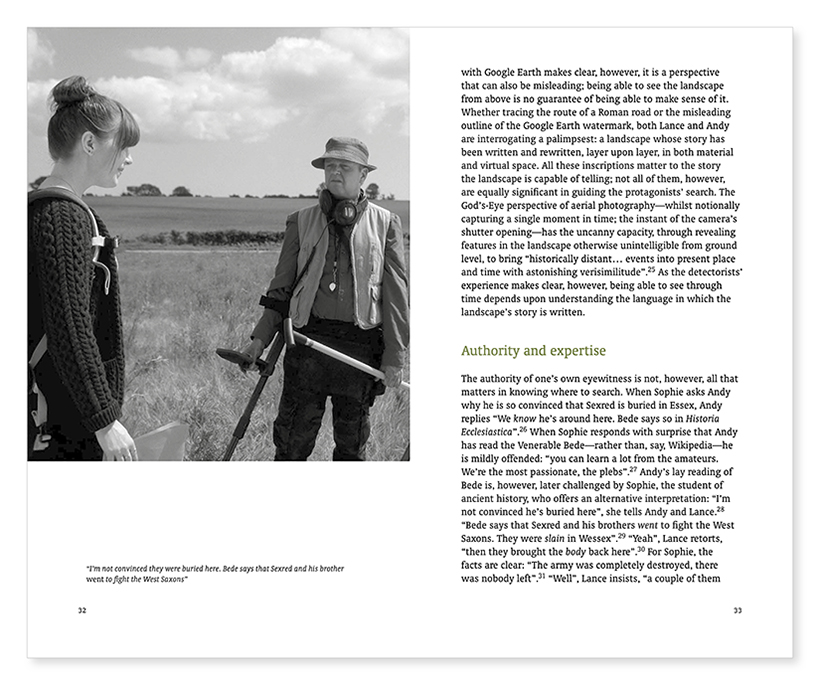
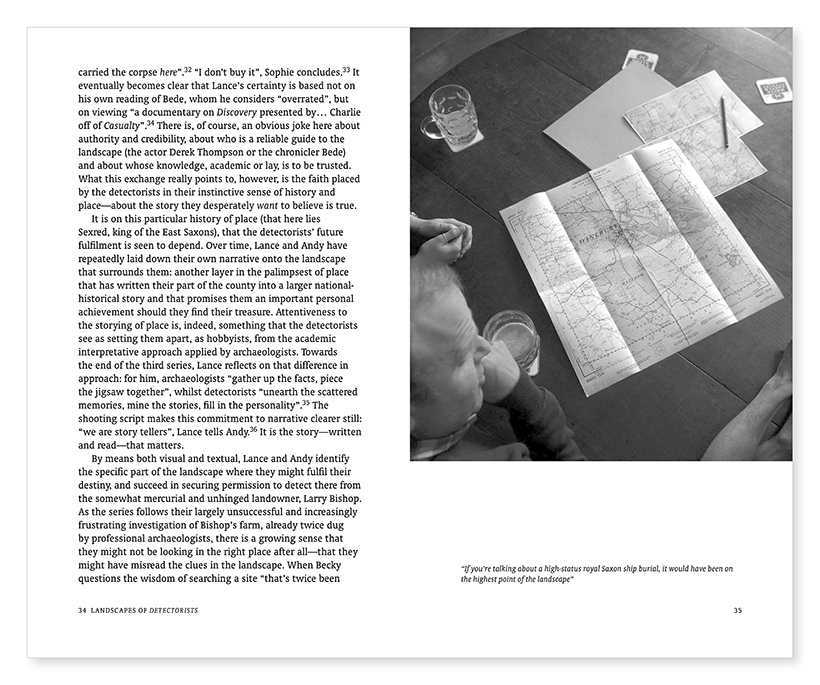
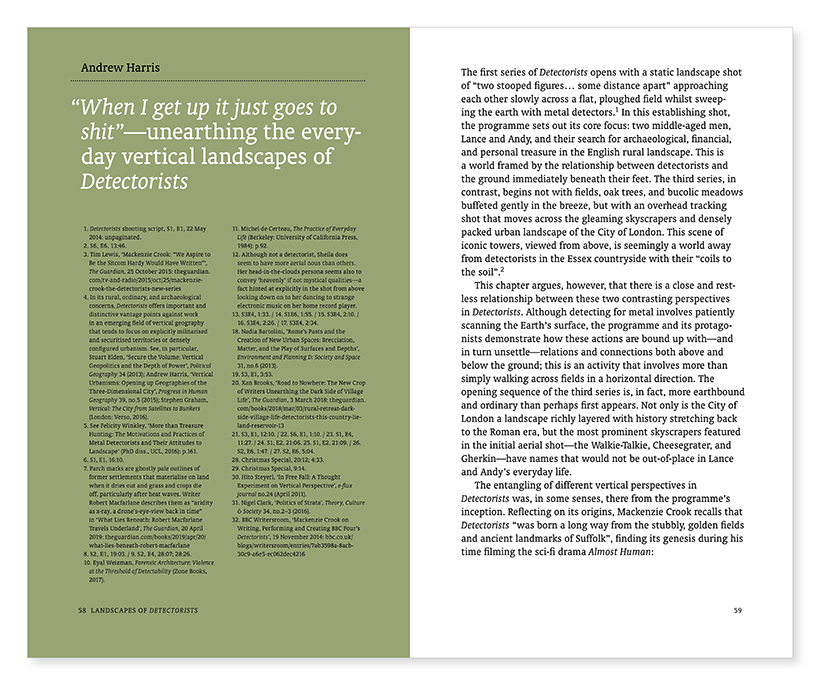
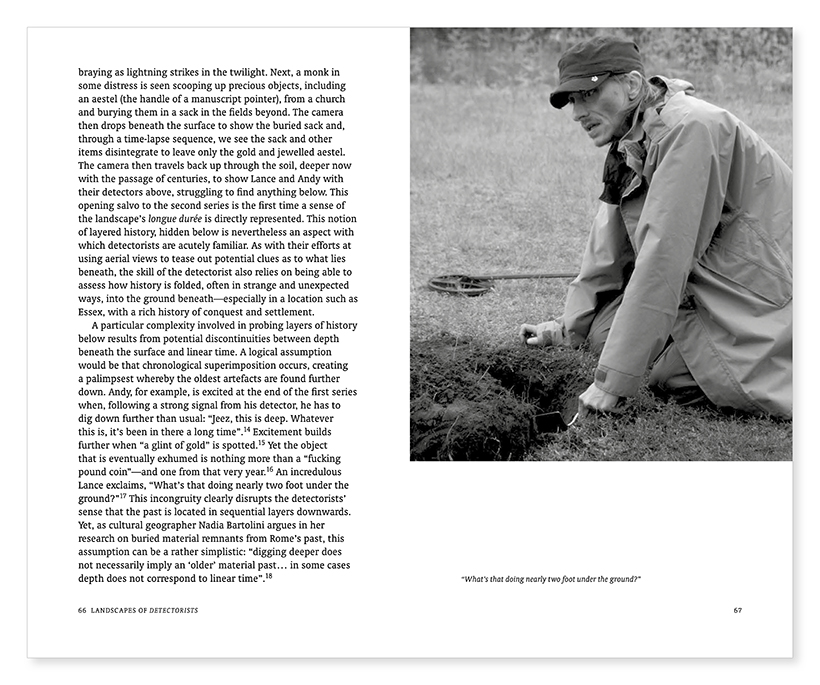
Innes M. Keighren is Reader in Historical Geography at
Royal Holloway, University of London. He has research interests
in geography’s disciplinary and discursive histories, in book
history, and in the history of science.
Joanne Norcup is Honorary Assistant Professor in the School
of Geography at the University of Nottingham and Honorary
Research Fellow in the Yesu Persaud Centre for Caribbean Studies
at the University of Warwick. Her interdisciplinary research
interests span cultural and historical geographies of knowledgemaking, archives, popular culture, and public libraries.
